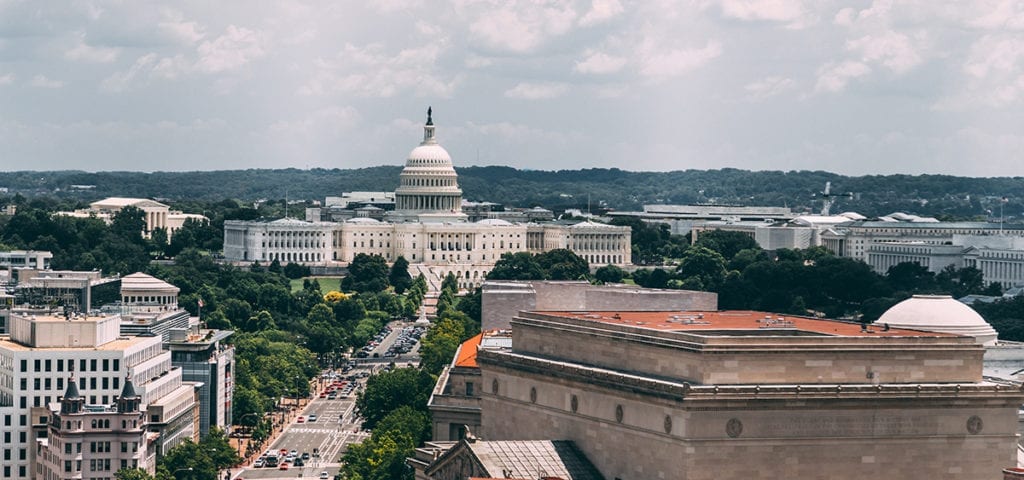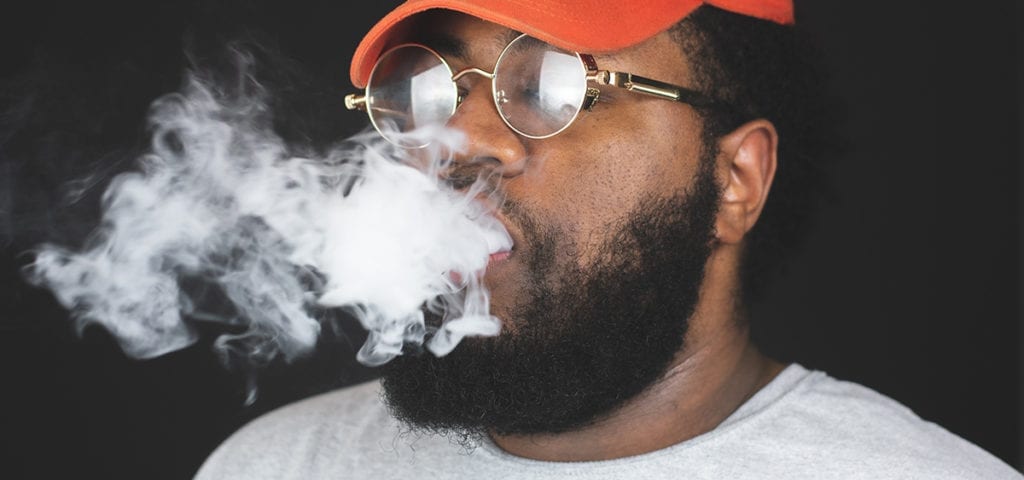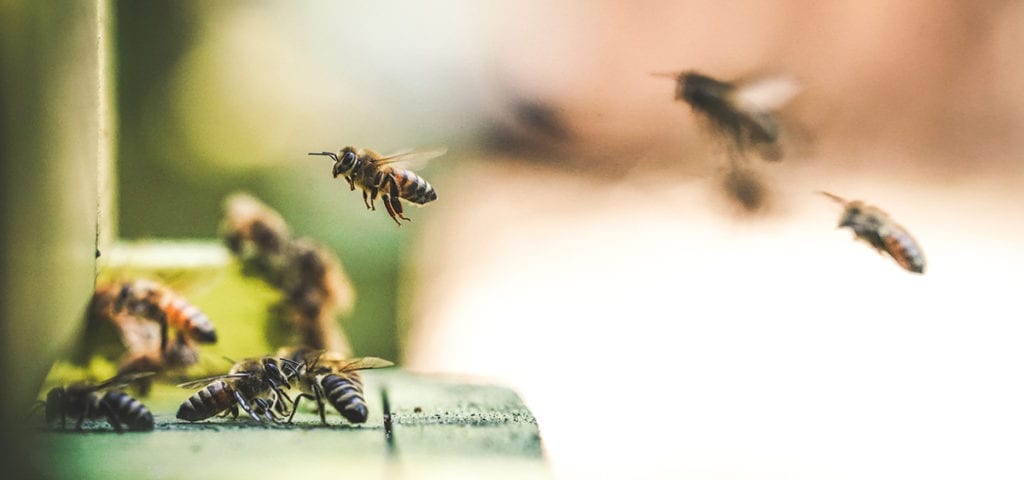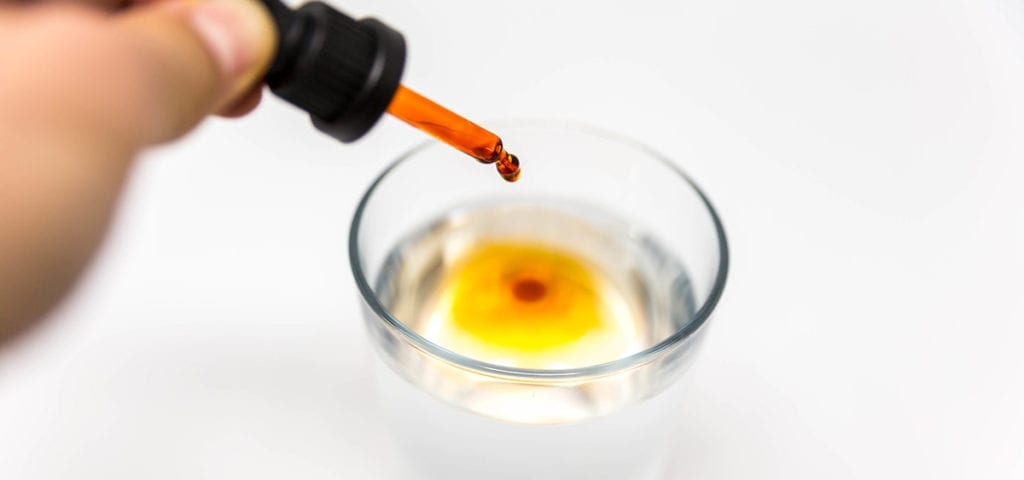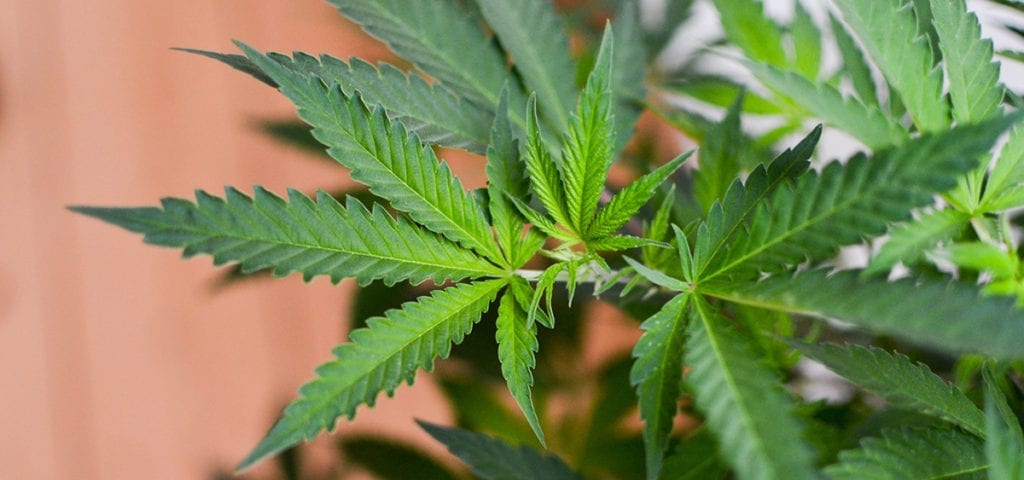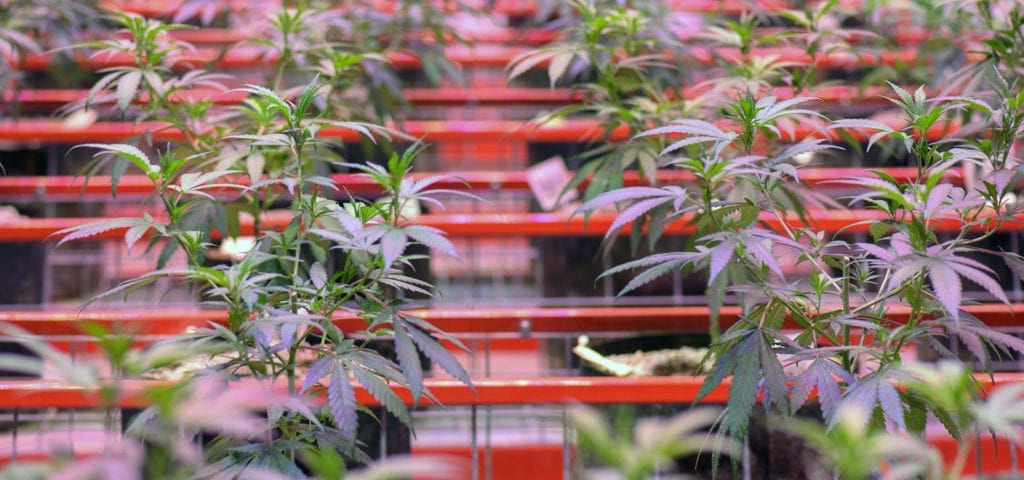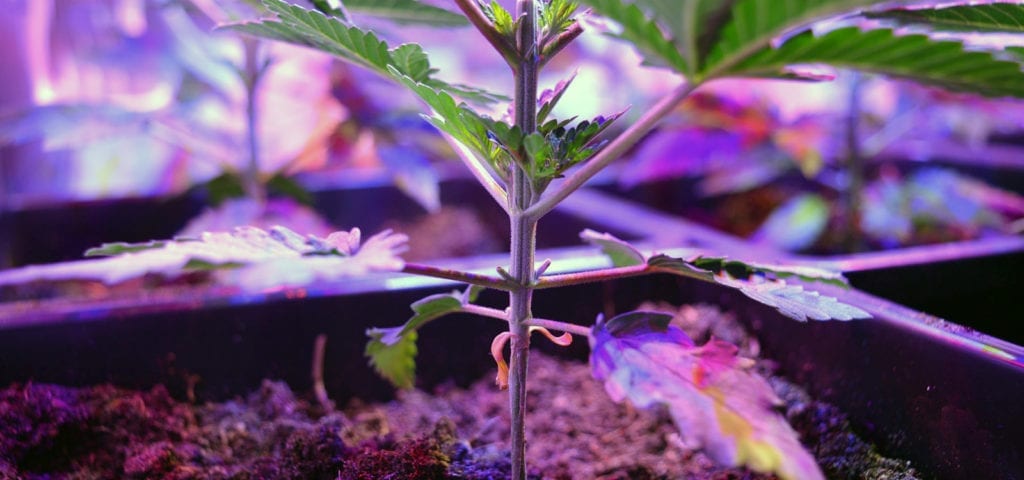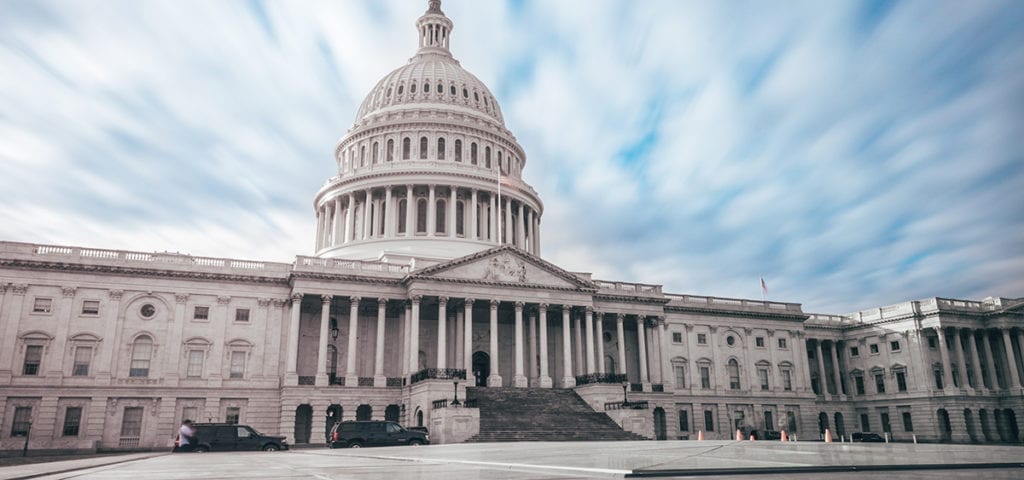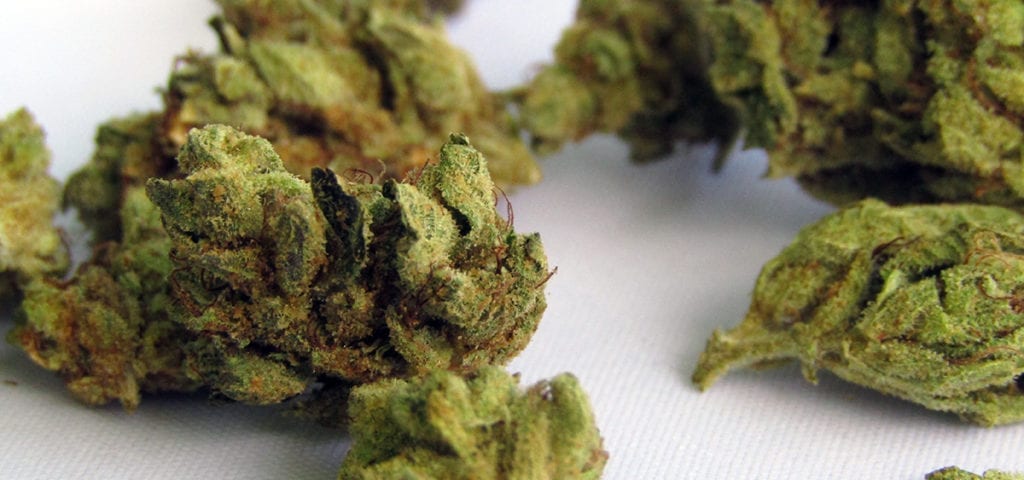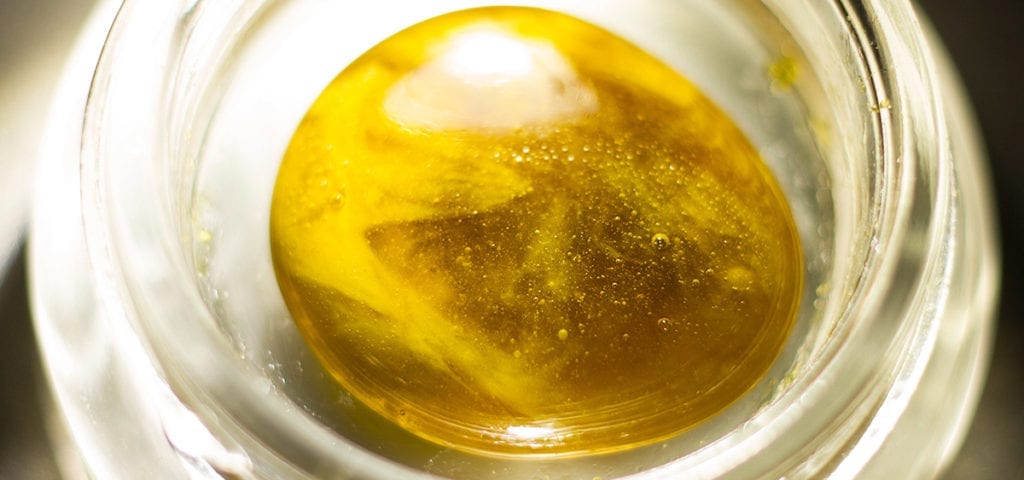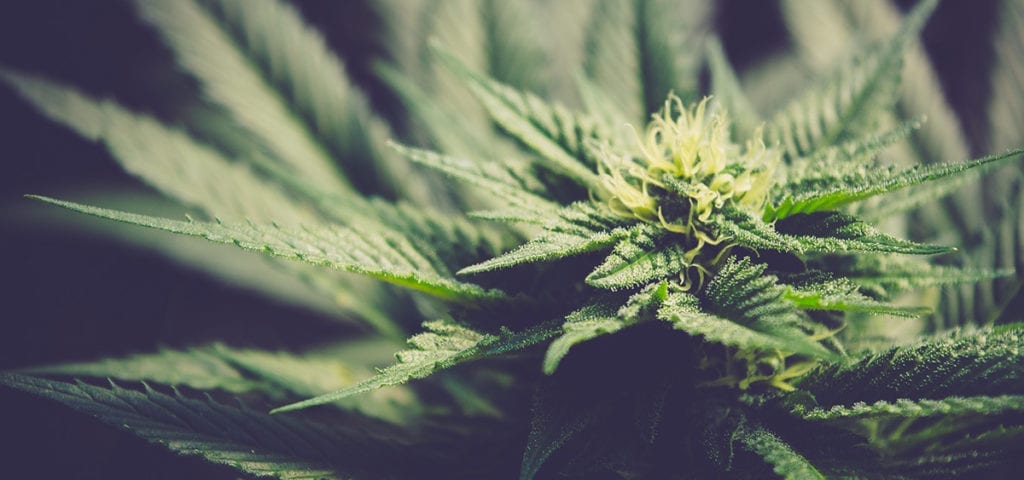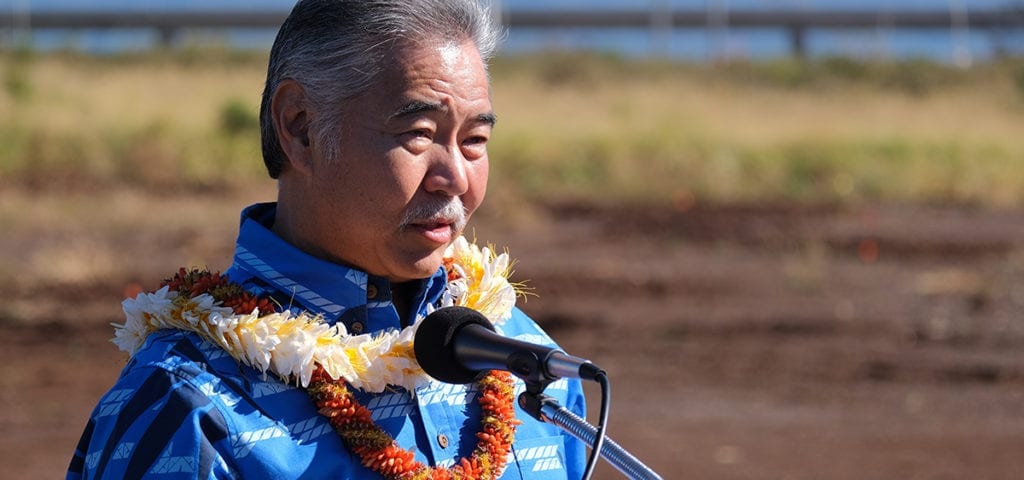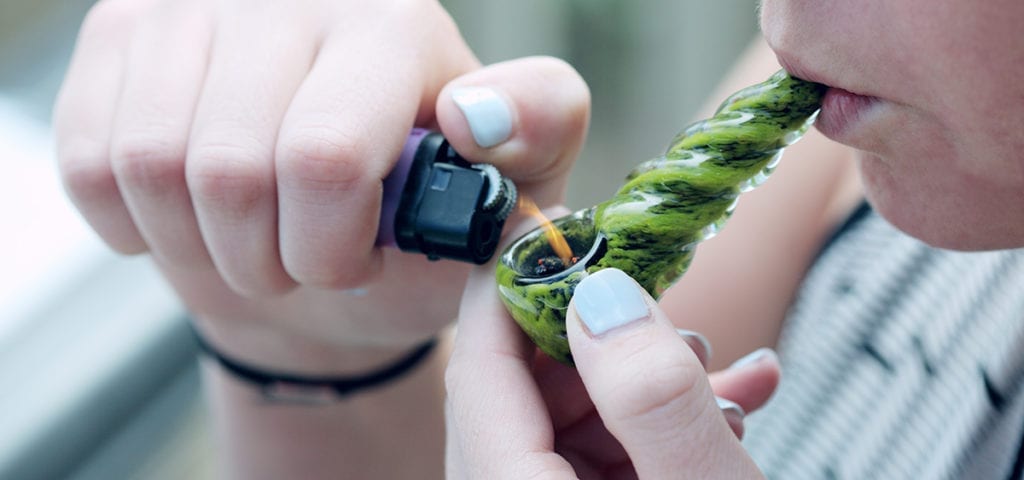Activism, healing, empowerment — these are important foundations for the Sisters of the Valley, a group of self-described cannabis nuns in Merced County, California that grow and distribute CBD products including salves, tinctures, oils, and more.
After the recent release of a documentary highlighting the sisterhood, founder Sister Kate joined our podcast host TG Branfalt to share her story and address some misconceptions perpetuated by the film. In the following interview, Sister Kate discusses her unique life story, talks about founding the religiously unaffiliated Sisters of the Valley, describes her many advocacy efforts and success stories, shares some of her more painful struggles, and a whole lot more!
You can tune in via the player below or scroll further down to read a full transcript of this week’s Ganjapreneur podcast episode.
Listen to the podcast:
Read the transcript:
Commercial: This episode of the Ganjapreneur podcast is made possible by 420 friendly service providers in the Ganjapreneur business directory. If you need professional help with your business from accounting to legal services to consulting, marketing, payment processing, or insurance, visit ganjapreneur.com/businesses to find service providers who specialize in helping cannabis entrepreneurs like you. Visit the Ganjapreneur business directory today at ganjapreneur.com/businesses.
TG Branfalt: Hey there, I’m your host TG Branfalt and thank you for listening to the Ganjapreneur.com podcast where we try to bring you actionable information and normalize cannabis through the stories of ganjapreneurs, activists, and industry stakeholders.
And today I’m absolutely thrilled and a little bit nervous joined by sister Kate. She’s a founder of Sisters of the Valley, subject of the documentary Breaking Habits. She produces CBD products in Merced County, California. She has an amazing story. The film that she was the subject of was, I mean it gives me chills just sitting here sort of thinking about it. I mean, when we talk about activists, we really have, I mean one of the best. A truly remarkable person, Sister Kate, thank you for coming on the show. How are you today?
Sister Kate: Thank you. That was a really warm welcome Tim. Thank you. I’m glad to be back here. And I think when you’re saying somebody’s an activist, you don’t say they are good. You say they’re a bad ass.
TG Branfalt: I’m a little bit tongue-tied. So before we sort of get into, you know, what’s going on, and without giving too much away, so people you know, want to, you know, watch the film. Tell me a little bit about yourself and, you know, your background.
Sister Kate: So I had a pretty, you know, I got my degree in business education in Wisconsin, a red state. I came out of University a Republican because that’s the way they make you sometimes when you don’t know very much about the world. And I mean, I even voted for Ronald Reagan once. So I was pretty like, in my own bubble. I believed a lot of the bologna about, you know, that poor people are poor because they don’t work hard enough.
And I just believed a lot of bologna, that was just not true. Very, very solid misconceptions about America, and how the deck is stacked against the poor in America. And even in the, you know, seventies, and I think I graduated from university in ’81 you know, there was still this sort of hostility and was I sort of on the side of the stupid. I took, down the road, I took an assignment in Europe, I ended up spending almost a decade in the Netherlands with my children.
And you don’t really get to see America for what America is out until you leave it. Sometimes you can’t see your own family for what it is until you leave them. Sometimes you can’t see your own enclave or business for what it is until you leave them. So it was leaving and living in Europe and getting like, a fresh perspective on my country, it totally changed me, but it also gave me a fresh perspective on functional socialism, sitting side by side with functional capitalism.
And so it changed how I felt about things. And then when I came back to America in 2007 right before the banking crisis, I could see that my country, I had done a lot of traveling in Europe with my children and my husband, and we could easily see the difference between a conquered peoples and the conquerors. So look at England, look at Ireland. Ireland’s a shabby version of England. Look at Malta, look at Sicily. Malta’s a shabby version of Sicily.
Everywhere you go in Europe, you could see the difference between the conquered people and the conqueror. When I came back to America, it looked like we were conquered people. It looked to me like we’d become the Middle East where we had no history of cooperating with our government, no history of working together, that the people work against the government. Government works against the people and now here we are sort of in the country with trash from sea to shining sea.
TG Branfalt: It’s super insightful. You describe yourself in the film as an anarchist and is that representative of sort of your political philosophy at this point?
Sister Kate: No, it’s not. Not really because when people think of anarchists, they think about throwing tea over the harbor and I wish we wouldn’t have thrown the tea because then we would at least have national health care. Right?
And so anarchists usually think of not paying taxes where we’re all about paying taxes. We think our farm towns are creating generations of meth addicts because there’s nothing for our children to do in these small towns. And so we’re about paying taxes. 14% of every dollar we earn goes in taxes in some form or another. So we’re not really anarchists from that standpoint, but we are anarchists against the patriarchy. We are anarchists against those who are marginalized. We’re anarchist in the way that we started our business without a permit and four and a half years later, we still don’t have a permit. Even though we’re paying our sales tax and our payroll tax and our federal taxes and blah, blah, blah.
We don’t have a local permit to operate here, which is also a part of the theme of the movie. And it’s four and a half years into it and we still don’t have a permit, but neither has anyone tried to shut us down. So from that stand point we get to claim anarchists, I guess, we’re anarchists from the standpoint that our county says it is not legal to grow cannabis plants outdoors.
You have to pay PG&E for fake lighting to grow something that’s natural. And we go, oh no, no, no, we’re growing 36 and we’re growing them outdoors, but we’re not like the cartel where we have 36 acres. So we have our 36 represent like, an eighth of an acre of plants. Right? And so we are anarchist. I think we can claim the title in sort of a grade school way.
TG Branfalt: You told me about, you know, how your thinking sort of evolved on America, right? Due to living in Europe. How did your thinking evolve ultimately on cannabis, you go from voting to Reagan?
Sister Kate: Yeah. It’s the same stuffing. Yeah. No. I remember the first guy that, I had a starter husband that lasted 18 months in Chicago. The Iran Contra affair lasted longer than that marriage did. But, I remember that when I went to visit him, I arrived at his apartment for the first time. I was actually spending the weekend at his apartment in Chicago and I arrived and he had a roommate, and his roommate was a rolling a joint at the kitchen table and I went straight through into the bedroom, locked the door, called him at work, and asked him why he would leave me alone in an apartment with a rapist and a druggie.
And so I really, I equated the fact that he’s smoking weed. I am alone in this apartment. He’s going to rape me. Honest to God, that’s how juvenile my thinking was when I was about 20 years old.
So it was living in… It was later realizing that I come from a long line of alcoholics, my father’s an alcoholic. At any one time I have relatives trying to heal themselves through alcoholism. So it was really about the age of 24 or 25 that I went, you know, hangovers are stupid and I like to party and I’m in business and there’s a lot of partying that goes on in business and I’m done.
And I started smoking weed as recreational in place of drinking alcohol. And then it wasn’t until much, much later that I was going through menopause and my doctor in the Netherlands said… I couldn’t sleep. And he said, “Do you smoke weed?” And I said, “Yeah.” And he goes, “Well not enough. You need to smoke more, you need to cut out the alcohol, cut out the caffeine, and smoke the whole joint before you go to bed at night.” And I was like, okay.
And then my symptoms magically went away. And that started, I was like 40 some years old. So at that started to give me an appreciation of the cannabis plant as more than just an alternate rate recreational drug, but also as something that could actually be beneficial. But that was sort of my own self journey.
TG Branfalt: So it’s funny you mentioned alcohol. I actually don’t drink alcohol. And I consume cannabis and I, you know, and it’s because I had a problem and I used cannabis as sort of an exit drug from alcohol. In your… In the documentary, you know, we do get a look at your son who struggles with addiction and ultimately uses cannabis, it appears, as an exit drug.
Is… What was that like for you as a parent and, you know, somebody who has such a deep personal relationship with cannabis?
Sister Kate: Well, I think that the movie makes it look like the cannabis was the gateway drug that got him to meth. And then cannabis was the gateway drug off of meth. And I think the movie completely misses the point. My son was 15 years old and came home with his eyes dilated and thinking the roof was talking to him, from school, from some random pharmaceuticals that at 15 years old, someone, he got in high school, someone just gave him.
So it was at that age that I said to Alex, “Don’t do that.” I tell it to all my boys, quit relying on the world out there to give you clean meds, you’re going to die from this and if you grow I will let you smoke whatever. So I sort of made a deal with my son at that point. So that all happened with my son long before the sisterhood, and the movie kind of tosses my life into like, sisterhood soup in my opinion.
So you don’t really get a feeling for how things went down. It was at that point that we, I had a family meeting with the boys and the 15-year-old was the youngest and said, “Look, if you grow me vegetables, you can grow weed, and you can smoke all you want as long as you take four core classes.” Some of them were in high school, some of them were college, four core classes, English, science, social studies, math. As well as a foreign language, as well as a musical instrument. And do one volunteer service a week that lasts three hours.
And do you have to do this, this, and this as far as chores around the farm. And if you do all of that, I will not regulate your cannabis use. So my vision of what happened with my 15 year old son was first the pharmaceuticals got him and then I use cannabis to make sure the pharmaceuticals didn’t get to keep him.
And then that was at 15 and then at 20 he’s at university thinking he’s buying Molly, and the Molly man’s selling him meth, which he should’ve known better anyway. That any college kids trust any drug dealer to come in with something they’d score to put in their body — that’s just so appalling to me.
But he did the same and came out of school his second year a full blown meth addict. But he wasn’t living with me at the time. And I kind of believe that if that kid would have always had access to weed, he would have never done that ever. But he wasn’t allowed to have weed. They weren’t even allowed to smell like weed in the university.
And if he ever tried to get weed, he was always getting in trouble. So he goes for the stuff that doesn’t smell and that won’t get you in trouble, but that will make you die. Molly cut with meth or Molly, meth fakely called Molly.
TG Branfalt: So I mean, I didn’t… When I was watching the film I didn’t sort of get that sense that you know, cannabis, but I’m also, you know, a very cannabis positive person who have seen, you know-
Sister Kate: You didn’t get the sense that me being cannabis caused my son to go be a meth addict?
TG Branfalt: I did… I personally did not get that sense.
Sister Kate: Okay, good.
TG Branfalt: But, I do want to ask, you know, I grew up in a household that, you know, my mother abhorred drinking and I drank a lot, you know, to excess all of the time. And you know, she always said I would much rather you smoke cannabis. So, so I grew up in a very cannabis positive household. Can you sort of tell me about your experience raising children in sort of a cannabis positive household?
Sister Kate: I just, my kids were real smart little kids being raised in Holland and going to school where they had to speak only Dutch. So I just remember when we had to come visit America, I would have a little talk with them and explain that Americans are insane. And you know, those little cigarettes that Mama has on her desk that you guys see every once in a while? They were like, yes.
If they know in America that Mama has this, they’ll take me away from you forever. They’ll put me in jail and throw away the keys. And my little kids, they’re like, second third fourth graders with their mouths open like, “wow.” Yeah, it’s insane. So we can’t talk about it when we’re over there.
So I guess I started conditioning my children at a young age to cultural differences. And I also told them when they get mad at me, you know, you could just turn me into American police, and they would always look at me like I’m insane.
But yeah, no, it was just kind of like, this is an herb, this is my mamas medicine. And I, but also I smoked cigarettes. And it wasn’t until I discovered CBD cannabis that I was able to use that to give up cigarettes. And my children, children from like 10 years old or younger, know how harmful tobacco is, thanks to our propaganda machine.
But they don’t know that maybe this cannabis is helping you give up addictions. And there’s many, many, many… I get a kick out the newspapers, they asked me how many people I got off addictions with cannabis. And I’m like, personally, eight people. Now there’s thousands of people that have written us and told us, but there’s only eight that have personally come to us and said, “Sisters help me get off my meth or my heroin or whatever.”
And we’re like, okay dude, we’re going to turn you into a stoner though. And you have to be okay with that for some period of time. And, then we work with them.
TG Branfalt: And so you have people in the sisterhood, the age range, you know, and then you have the children. I mean, who are adults now, but what did you notice sort of from generation to generation with the people that you sort of deal with, the people who you help as it relates to cannabis? Are there a lot of differences in how people think…?
Sister Kate: Well I find that the kids… My kids that went to universities that stayed at UC campuses and went through university are so much more careful, cautious, and paranoid. My millennium, than I ever was. I mean I smoked weed in every major airport in the world. I always positioned myself about 10 feet upwind from the nearest cops or security and I would pull out my joint and smoke it everywhere.
And my son got so mad at me for vaping in an airplane. We just took a trip together and he’s 26 now and he’s an engineer on the coast. And I say to him, because there’s a bunch of turbulence and we’re on this plane that’s about to land. And I know he’s got a vape pen and I’m not very much of a fan of vape pens. I like my joints. I’m old school, but I’ll have them if I’m nervous or upset or something.
So I say to him, “Can I have a hit of your vape pen, this turbulence is getting to my stomach?” And he says to me, “Oh, for crying out loud, we’re landing in 15 minutes. You can just wait.” Like he’s the dad and I’m the kid.
And his girlfriend poked him and said, “Give your mother your vape pen.” So I just think they’re far more conventional. And I think that the university, I blame the universities for taking the hippy free loving spirit out of our millennials.
TG Branfalt: So in the film too, there’s this one scene where you’re having sort of a conversation with a Christian, I’m not sure, a religious person and-
Sister Kate: Pastor, a street pastor.
TG Branfalt: I’m wondering how often does that happen to you? And then on the flip side, how often do regular people mistake you for a Catholic nun?
Sister Kate: Okay, so first of all, we don’t go out much. All of our medicine is made in a clustered environment here on the farm at a private address. We rent a number of public addresses. All of our medicine goes through the mail to the U.S, and around the world.
So our lives are pretty, we’re not out much to be running into the public. Yet, we are activists, so we go out to protests. When we’re out at protest, we’re with our own people now, and maybe it wasn’t like that four years ago, but whenever we’re at a protest, we’re with our own people.
No one confuses us for Catholic nun, and they all know who we are. It wasn’t always like that, but that’s how it is now. Yes, we get, I’d say I haven’t been accosted by a street minister since that filming. That was like, the last one have because most people now know who we are and we’re more likely to get the question, “Are you the real Weed Nuns? Are you those Nuns from California?” I say now, it’s more likely that a Catholic Nun will be asked if she’s a Weed Nun than it is if we’ll be asked if we’re Catholic.
TG Branfalt: Did you have any hesitations about being filmed for that documentary?
Sister Kate: I hated it. I hated every moment of it and I found it was so invasive and I felt like I was being manipulated all the time even though I probably wasn’t. It was just paranoia that, “What do you want and why is your camera in my face? And why did you have to follow us walking past palm trees? And don’t tell us we’re brilliant. Quit telling us we’re brilliant. We handle really hard problems. Walking under palm trees in a row does not make us brilliant.”
So, I found everything about the filming annoying and yet with the calling, everyone here, all of us Sisters serving together, we all feel seriously that we have a calling or we wouldn’t do this. And so, our calling requires that we pretty much say “Yes” to any media opportunity, whether they’re going to be nice or hostile, whether they’re going to flip us or not. They’re putting our face out there and we do have a lot of trust in the people not to believe everything they see.
We feel like with the entering in the age of the divine feminine comes the entering in of the age of divine truth and authenticity. We feel that the reason we have Trumps and the reason we have racist leaders right now is because of this need for authenticity. They’re horrible, but they’re honest. And right now, people want that.
So I think, yeah, I didn’t want to do the film. I didn’t like anything about it. I was getting a lot of offers. I chose Rob because he was a well respected BBC documentary filmmaker. And I chose him because I felt like the content needed an outside of America view. The valley needed an outside of America view and I think he gave me all that.
TG Branfalt: So, you mentioned sort of briefly your sort of overarching philosophies and you do have vows of some sort. Can you tell me more about those philosophies and the vows and just sort of the life that you live in the sisterhood?
Sister Kate: Yeah. I said this terrible thing to a UK Times reporter yesterday. I so regret it. Sometimes, I just need someone around to lever my mouth for me. So, he was here for four hours and I never had anybody dig into me so much, like so much detail on timelines and stuff. So, he had really worn me out. And as he was leaving, he stopped three times and said to me, “Sister, do you seriously see yourself doing this for the rest of your life?” And I said, “Yes, absolutely.” And then we got to like the second house where he had to pick up his equipment and he said, “Seriously, Sister. Do you seriously see yourself doing this for the rest of your life.?” And I went, “Yes. I told you I do.” And the third time when we were walking out the front door, he asked me, I said, “Why not?” I said, “I’m sure at some point I’m going to have my own apartment and two young men taking care of me or something equally as awful.” And I know that’s going to end up like being on the punchline to his story in England.
Could you take that Iphone? It might be banking solutions, so just tell them… Sorry about that.
TG Branfalt: It’s okay.
Sister Kate: So anyway, yes. We take vows. Yes, we’re serious women. So, we are patterned after our Beguine mothers. And the reason we’re patterned after them is because they were the first organized nurses in the castles of Europe starting in about the year 600. And they farmed, so they had an off the grid farming operations, but they also had an apartment in every castle where they tended to the sick and provided their hemp soaps, hemp textiles, cannabis medicines and other herbal medicines. Just like the Beguines in the castles of Europe, when they had to step back when the king’s son had epilepsy and they had to step back and let the White pasty middle-aged balding men come in and put leeches on the king’s son while they had herbal medicine that would have helped him in their basket, we feel in kinship with them because we have to stand back and watch the medical system put harmful pharmaceuticals and chemo and radiation into people without acknowledging all the benefits of plant based medicine.
So, we’re in kinship with them that way. We’re in kinship with them because they basically went extinct after the inquisition or turned into Catholic nuns because it was either be Christian or die and the Beguines were scholars of all religions and they would not affiliate themselves with any one religion. They believed in women owning property and women owning businesses. So, they were creating paths for women to own stuff, so then women could have political power too.
So, we are not nuns. We are really Beguine revivalists. We are the precursors to the nuns. I believe that there is no coincidence between the fact that Saint Scholastica founded her order in 880 and about that same time, Gutenberg came out with his press and the first book ever printed was the Bible. And now, all of a sudden you’ve got the inquisition ramping up and I believe that Saint Scholastica was actually in her heart a Beguine sister from Beguine enclave or wanted to be a Beguine and she had to create an order that had the women living in isolation, not having access to books or study, living poor and off the alms of the people, living celibate. She created something to survive the inquisition. That’s what she created.
But I think that if she could have been born again after the inquisition, she would have created something much more in line than what I’ve created, which is a spiritual operation, a women empowering operation, and a path to women ownership of businesses, which is in the path to being able to make laws, which is in the path to creating compassion for people in the planet.
TG Branfalt: I wish they had talked more about that in the film.
Sister Kate: They didn’t because they got as far as the shooting and that’s all they wanted to talk about. And now, they want to do a followup and I don’t want to. I’m like, “No. No.” That was painful the way it was, and I lost banking because of that film. January 8th, the trailer was released. And January 8th, we got a letter from our bank of four and a half years saying, “Sorry, you’ve got a bank elsewhere.” And they gave me a multitude of reasons, and I bought it for four months, but last night at midnight we lost banking. We essentially have to shut down our business or beg. So we’re on Go Fund Me and we’re begging right now, and if you don’t mind me plugging, it’s called Save-The-Sisterhood. It’ll pop up. It’s us. Ours is save the sisterhood from banking attack, he other one is saved the some mouse that needs to get an operation. So whatever. That’s the world of Go Fund Me.
But I want to get back to answering your question. Yes. The movie treated us like we’re… I think the little gangster. But them putting the gun in my hand when we’re not gun women, that I felt very manipulated over. And I let them talk me into it based on the fact that I really did have a gun to guard my first crop. I really did do that. So they were like, “Sister Kate, you’ve got a gun to guard your first crop, so you should let us at least get one image of you with a gun in your hand.” But they weren’t supposed to put me in the film that way and they weren’t supposed to be putting things I said like, “I’ll do whatever it takes to protect what I’ve built” when I was thinking about running for sheriff. When I said those words, I was thinking about running for sheriff. I wasn’t thinking about shooting anybody. So, that’s what I meant about feeling manipulated and not really want to do it again.
But, back to our vows. Let’s talk about our vows, okay? Because you asked about it.
TG Branfalt: Okay.
Sister Kate: We take six vows and they spell the acronym SOLACE, so service to the people, number one. Second is obedience to the cycles of the moon and the quarters of the year. We call them the corners of the year. And today is Beltane, by the way. So, happy Beltane.
TG Branfalt: Thank you. Happy Beltane to you.
Sister Kate: Thank you. So, service, obedience to the cycles of the moon and the quarters of the year, living simply, activism, that’s spending some time every week and month involved in fighting for the marginalized or holding our politicians accountable, anything in that category. Chastity: our vow of chastity is about privatizing our sexuality for a number of reasons. One, we think the energy of sexuality and the energy of healing are opposite energies. Two, we feel like Muslim women are the only women that are dressing as our ancestor mothers did and that makes them objects of persecution. Three, dressing as our ancient mothers is a morning meditation and being in touch with them and making them proud because many of them were burnt at the stake for being scholars and for being medicine makers. And there’s probably more.
TG Branfalt: It’s super inspiring, really. And so, I-
Sister Kate: Oh, sorry. My last one after chastity and privatizing is ecology, and that is that every January, we take a major step towards reducing our footprint. So, it’s usually a fourth quarter project where we’re gearing up and spending money for whatever we have to do to convert to a more sustainable footprint. Growing more food, canning, we’ve got a plastic crushing machine so we can take our plastic coconut bottles and turn them into bricks and maybe build a chapel out of it. I don’t know; we haven’t decided. But essentially, every January 1st, our whole New Year’s thing is all about another step towards living in better harmony with Mother Earth and less pollution and less footprint.
TG Branfalt: … You are living your best life, and I am super jealous.
Sister Kate: Well, you’re going to have to come visit us sometime. Bring your Mama.
TG Branfalt: She’ll never leave.
Sister Kate: That’s okay. Then you’ll have a bunch of Weed Nun aunts.
TG Branfalt: I can’t wait to call her after this. At one time, did you cultivate THC plants?
Sister Kate: Of course. Of course.
TG Branfalt: So, can you tell me about your experience, now that you’re doing CBD only versus when you did THC and your philosophies on the role of each in wellness?
Sister Kate: Yes. So the CBD we’re growing is no different than the THC I always grew. And when I say “I”, I use that word very loosely because I always have brothers or sons or agricultural people around me, usually men, who do the growing and I claim all the credit. But so, I don’t actually… I mean, I’m more of a business woman. I’m more the person who creates the legal environment so that we can do this. And I’m a great appreciator of both THC and CBD. And I think that we are selling half the medicine to the people. We are half medicine women because we give out half the medicine, but we’re doing what we can to get it to the most amount of people in whatever form we legally can do it in. But I grew THC and ran a nonprofit delivery service for three and a half years or four years. That was like, before Sister Occupy and sort of during Sister Occupy.
As I became Sister Occupy, I realized the nun uniform made a very a safe armor for me when I went into places that were very unsafe to deliver cannabis. And I realized I could go into the core, I could go into places where the hookers hung out, and if I was Sister Occupy, no one bothered me. So, the personas started to mix during those years when I was running a THC business and I was really discovering my inner nun. I mean, I was taking medicine to dying people, people who couldn’t sit straight, people who were seizuring so bad that when I’d get there, I’d sit and roll, get the cannabis in the pipe. Sometimes, I would inhale it and blow it into their mouth to get them to calm down enough or to stop seizuring enough or shaking enough that they could get the weed. I’d bring in the same guy a cigarette so he can have some tobacco who was hardcore all his life and now he’s shaking so much, he can’t even have a cigarette. You know, doing whatever it did to reduce suffering in a nonjudgmental way, that taught me how to be a nun.
So, it was really back in those days, I was growing THC, I was delivering THC. I didn’t talk about CBD in those days. In those days, all the conversation was Indica or Sativa. That was it. And I didn’t know hybrid or or more pure strength. I didn’t know anything else. In 2014 though, after the fallout with my brother and after I had put down the nonprofit and I would still have a calling to the cannabis plant. I was like, “Damn. I don’t want to go anywhere. I want to stay here in poor California and grow weed.” I had such a calling for it and I was so sad for the year or two in there that I didn’t have a crop. I was genuinely sad and depressed that I didn’t have a crop. Nothing else bothered me as much. The loss of my brother, the loss of my family, the separation with my children, nothing bothered me as much as not having a crop growing. And I realized then that I have a calling and I have to make this happen.
So, I started doing research and I went, “You know what? I want to be to the Central Valley with the early pomegranate and almond farmers and peach farmers who are, when they came from Spain and Italy, they didn’t just grow for themselves. They grew to export to bring money from the outside world to help them set up schools and streets in this core Central Valley. I want to be like them and bring outside money into the Central Valley.” So, that’s when I started researching strains that wouldn’t get you high, researching saps and tinctures that I might be able to ship to the rest of the world and might be able to bring in new money to this poor, poor farm community.
TG Branfalt: Unbelievable that you were thinking so far ahead with regard to why you wanted to grow CBD. None of the reasons that you’ve given me for anything are the same reasons other people have for things, which is outstanding. What are your opinions on California legalization?
Sister Kate: Well, that’s funny because we were for Prop 64. We believe that if everybody would vote in their own self interests, democracy would actually work. And so, we voted for Prop 64 for a very simple reasons. We’re not in the THC business, none of those laws affect us. We even had the Bureau of Cannabis Control tell us that “You are”… we know we’re not industrial hemp. We know we’re medical hemp, but they’re like, “For now, you’re industrial hemp, because we don’t know where to put you.” So, sorry. What was the question? I’m sorry.
TG Branfalt: What’s your opinion on legalization as a whole?
Sister Kate: Oh. So, when it came to Prop 64… Sorry. When it came to Prop 64, we took the simple position that we get visited by media all around the world and it is illegal for me to hand over to the French reporter who’s 38 years old a THC joint when he comes to visit me. It’s illegal. I could go to jail for that. So, for the longest time, the media visited us and they always ask… the media always wants to know everything about our smoking habits. So, we got sassy and started asking them.
So, when a camera guy is here and he says, “Do you smoke weed every day, Sister Kate?” I’ll be like, “Yes I do. Do you, Mister reporter man?” So, we always ask the question right back of them, and funny, you know, probably 50% of those people smoke weed. So then we’d say, “Well, we can’t give it to you. We can’t give you a joint with THC in it because we could go to jail. But if you steal one off our desk, we won’t report you.” You know what I mean? Silly games. So, we voted for Prop 64 just because we think anybody over 21… we actually think anyone over 14, has the right to have cannabis as a medicine and make their own decisions about that.
TG Branfalt: What about the Federal Farm Bill that passed last year? You know, you don’t grow THC plants. Did that give you any security with regard to any federal enforcement that you might have been worried about?
Sister Kate: Yes. Yes. The Farming Bill helped us because we get concentrates from a farm in Colorado and we bring in clamp from Oregon because we outgrew our own ability. And also, the law here won’t let us grow more than our little bit that we grow, violating the law and our kits that we are, our 36 plants. They won’t let us grow, so we import a lot of stuff. So, we’ve taken cover from the Farm Hemp Bill for years now. It went through some kind of official thing recently, but it’s always kind of been there for the last couple of years. So, there were Farm Hemp certified farms and we’d work with them. We make sure we work with only the certified farms for our plant material. We’re not certified, so that’s another way we break the law. Once a year, we make a batch with plants from our own backyard and we’re not certified. But we try to work with those, and that does give us some cover, but it hasn’t helped us with banking. It hasn’t helped us keep our banking.
TG Branfalt: And that’s … I mean, that’s something that’s coming at a federal level. I mean, I know that there was some talk in California about them basically building a state bank for canabusinesses. Have you heard anything about that?
Sister Kate: Yeah, I just this morning called our sales tax, you know, entity. The guys who are responsible for collecting sales tax. The guys we pay every month or they come out after you like the mafia, right?
TG Branfalt: Yeah, yeah.
Sister Kate: I got off the phone with them to say, “My sales tax was due yesterday and I can’t pay you because my bank account was shut down yesterday.” They said, “You’re going to have to convert your operations to cash.” I said, “The reason why we don’t need guns here or security here, and the way the Sisters feel safe here, and we can sleep in RVs and yurts, the reason why we’re safe is because we have no cash and no THC weed.” And she said, “I’m sorry. We have no solutions. All the businesses are bringing us cash.” And I’m like, “Dang. We should just go rob a sales tax office.”
You know?
TG Branfalt: Taxation is theft anyway.
Sister Kate: Yes, it is.
TG Branfalt: I want to switch gears here quite a bit. Can we just briefly talk about your car?
Sister Kate: Oh, isn’t Bessie a beauty? That is Sister Bessie.
TG Branfalt: Oh, I knew she had a name like Betsy. Tell me about the car.
Sister Kate: Sister Bessie.
TG Branfalt: She’s a Sister?
Sister Kate: She’s a 1962 Impala. She was born the same year as Sister Sierra, so they have a special affinity.
TG Branfalt: Oh, how perfect.
Sister Kate: Sister Sierra and Bessie are featured in a music video called Sex Weed TV done by Ollie Problemas who is an up-and-coming LA singer who wants to be a Sister.
TG Branfalt: How long have you had that car?
Sister Kate: We’ve had it … Brother Dwight bought it for us. Brother Dwight bought it for us. First all of, we would be too ashamed to buy a car that fuel efficient when we have to take a vow of ecology.
TG Branfalt: Yeah.
Sister Kate: So, we couldn’t buy it for that reason, but the Brothers can buy us things. So, Brother Dwight bought it for us, Brother Dwight had the vanity plates put on, and Brother Dwight keeps her in an auto mechanic shop where she’s well taken care of and well protected. We just bring her out like on Sundays. She’s old and she doesn’t want to be on the firing line, but we bring her out for Sunday drives. We bring her out for sometimes a ride to the coast to go to dispensaries. She’s our special events driver.
TG Branfalt: I mean, with the car, right, the guns, you know, I mean you’re not growing THC but you’re still growing cannabis. The documentary did sort of make you seem gangster.
Sister Kate: I know.
TG Branfalt: And that can’t be further from the truth. You know, when I was watching it, I was like, “She is a badass.” Right? You know, I was raised by a badass woman. You remind me of my mother vis a vis. What’s happened since the film wrapped up? Has your life changed because of it?
Sister Kate: Yeah, because … Well, right now, we’re like at threat of being put down because the bank took our banking away and we think that’s directly related to the film. So, there’s that crisis that we’re dealing with. Fortunately, during crisis you get to see the colors of people, right? Some people bail and some people rise to the top. We just are getting the most amazing outpouring of support from like investment bankers in the UK who want to just move a big amount of money into our account so we can survive this. So, it’s heartwarming, the support we’re getting, but it’s in result to the fact that we’re being put down, and that’s a result of the fact of the movie making us look very gangster. My bank didn’t care about us until they saw the gun in my hands.
TG Branfalt: I teach a media studies class and knowing … I mean, I’m going to use this whole thing as a case study.
Sister Kate: You should. You should because it’s a very … We decided to come out. I really didn’t want to come out about this because usually when I tangle with banks … And because I was a business analyst. I worked with banks. I worked with Deutsche Telekom. I worked with some of the biggest banks in London as a consultant, as an analyst, as a problem solver when they got stuck with internal debates. Like, “Is this pipe that carries customer data from Moscow, to Amsterdam, and we’ve headed over to the Middle East, is everything going to fall apart and are we going to get sued?”
So, somebody had to go in and look at their plans and bless them and those were the kinds of things I did in banks. So, normally, my policy of banks is they kind of run the world, and you don’t out them, and you don’t be mean to them, and you don’t protest them. Not if you want it. But I had to come out about this even though I haven’t named my bank. I had to come out about this because essentially every day we are piling up money on the stratosphere with MasterCard, Visa, Discover, and American Express, and they’re sitting on about $40,000-$45,000 of our money, and we have no way to take that money and spend it right now. Because the bank just closed down. They will only deposit that money into a business account and they just closed my business account. They will not deposit it in the personal account because the credit card companies, after all, are working by rules too. Banking rules.
They are collecting the money under the name of Sisters of the Valley, LLC. They cannot just dump into Christine Meeusen’s account. So, you know, we’re caught in this horrible, horrible situation. But let’s say that the world bails us out. Let’s say that the calvary is coming. The bankster men of the patriarchy are going to find a solution for the weed nuns and the public is going to support us through our GoFundMe Save the Sisterhood for the two to four weeks it’s going to take this to figure out.
Then let’s talk about how the film changed our lives, because it has from the standpoint of I never before had media call me and demand an exclusive story on us. That was hilarious. We’re like, “We’re a movement. Why would we ever give anybody an exclusive on anything?” But the fact that we have an interview either onsite or on the phone every day for the next 10 days. The fact that we’ve been gone on Chatter, and what else? Where were we in LA?
Speaker 1: KTLA.
Sister Kate: KTLA, LA. That was hysterical. I know so little about LA that I went down to be on KTLA, their largest morning show. A TV program in LA with millions and millions of users and I didn’t even put makeup on because I thought it was a radio thing. So, I’m like, “Who cares?” And then I get there and I find out that it’s a panel of people, and it’s big TV. So, yeah, the change in our life from this way, I think the movie is helping us gets introduced to the Sisters and the Brothers that can form enclaves around the world. I think that’s incredibly important, and as much as I don’t like hearing my voice or seeing my face, as much as I don’t like the implications of being made gangster, the message of what I’m doing has resonated with so many others who have done the same thing or had similar experiences, that overall, I think it’s going to be great for the Order.
TG Branfalt: Do you think that … You know, I know that you said the filmmakers wanted to do a follow-up. But do you think that you might approach maybe another documentary if it were somebody who you did have time to get to know, and that did sort of back, you know, had the same philosophies as you? Would that change?
Sister Kate: No, I want some editorial control is all. I just want editorial control. It’s my story, so if I do do a film, and I know these documentary filmmakers can’t. So, if I do a film, it’s going to be like, “No, I get to say what comes and goes because I don’t like you guys messing with my brand.” Here’s the project we really want to do, and it’s really close to our heart, and we think we have the right production team for it now is like a Sisters of South Park kind of animated series. Of course, it wouldn’t be South Park, as we don’t have the right to that, but when I say Sister of South Park, that paints a picture to people. The weed nun series, that we can be politically edgy, we can deal with every latest thing, but you need a creative team that’s turning that around real quickly. So, Trump tweets something stupid, we get to respond to that.
Sort of a venue for me to share all my batshit sister stories. I have a blog, actually, called Sister Mary Batshit Crazy.
TG Branfalt: Wait, you have a blog called Sister Mary Batshit Crazy?
Sister Kate: No, no. I have a blog called Cannabis Gates in California. My latest article that I did was called Sister Mary Batshit Crazy. In that article, I listed all the forms of Sister Mary Batshit Crazy I’ve seen since I’ve started this Order. Because it’s hilarious. There are funny, funny things that have happened. Out of respect for my sisters, I never talk about them because no one’s going to want to become a Sister if the Head Nun is blabbing about everything that goes on in the Order. So, instead I save my stories and every once in a while, you know, release a burst of crazy, and that got me the top rated animated production company’s attention to say, “Hey, we want to talk about this because this would be funny.”
Like, and the Sisters are very, very, very witty. They’re a very witty group of women. People who survive really hard times get chiseled into having sharp wit. We were leaving LA … Just to give you an example, this just cracked me up. We were leaving LA, and we had this candle, big candle for the Moon Ceremony in LA that I didn’t want to haul back. We had so much stuff to haul back. I’m like, “This candle is staying here at Evan’s house.” It’s an Airbnb. I said, “Do you think Evan will want to keep it or he’ll throw it away?” Because I was a little concerned because it was a sacred candle from a sacred ceremony. And Sister Sierra … I mean, Sister Alice says, “I think he’ll keep it because I scratched off the Jesus figure.” And without missing a beat, Sister Theresa says, “Yeah, but it’s Easter, he’s just gonna return in three days.” Like everybody just fell off their chair.
TG Branfalt: Sister Kate.
Sister Kate: And then the nicknames for our plays. Like Sister Sierra recently named it, dubbed us The Game of Crones. Sister Alice called our garden the … What does she call it?
Speaker 1: The Garden of Weedin.
Sister Kate: The Garden of Weedin. No, I mean, we have a lot of fun playing with words. We also have 420 music practice every day. The film, we’re-
TG Branfalt: What do you play?
Sister Kate: We sing. We’re like a barbershop quartet and we sing anarchist activist songs like “Please Don’t Fuck Up the World, Mr. President.” Sung like Marilyn Monroe to “Happy Birthday, Mr. President” but this is “Please Don’t … ”
Can I say that on here? I’m sorry if you have to beep me. That’s the name of the song. I didn’t write it. Ollie did. We sing “Cavanaugh.” We sing “There’s Nothing like the Wall.” We sing “All About His Bass.” So, we have like a repertoire of songs that we sing and now we’re getting requests to take that on the road. So, I think the film has been overall good for getting the message out, even if it makes me look gangster. I think we’re in the age of authenticity and people don’t really care if I look gangster, it’s what it seems.
TG Branfalt: Sister Kate, I’ve got to thank you for being so authentic. This has been a truly incredible opportunity for me. We have to cut this short. Where can people find that Kickstarter and find your products? Just give me all the plugs.
Sister Kate: So, it’s GoFundMe, Save-The-Sisterhood. There’s more to it from banking attack, but if you put in “Save-The-Sisterhood” our campaign’s going to pop up, so you can help us just get survival bridge money while we’re under attack from the banks. Or if you know somebody in the banking industry that can help us, write us at support@sistersofcbd.com. If you’re interested in growing in your own Order in your own corner of the world, we have Orders in New Zealand, England, Canada, and Mexico. Sisters … Also wrote support@sistersofcbd.com. Our website, we’re still up, we’re still selling products, SistersofCBD.com.
TG Branfalt: Sister Kate, thank you so much for taking the time.
Sister Kate: Thank you, Tim, and I will be on your show anytime. And seriously, you and your mom need to come out for a Moon Ceremony.
TG Branfalt: I think we need a Moon Ceremony. I think the world needs more Moon Ceremonies.
Sister Kate: So, this has been lovely. Thank you so much.
TG Branfalt: Thank you.
You can find more episodes of The Ganjapreneur on dotcom Podcast in the podcast section of Ganjapreneur.com and in the Apple iTunes store. On TheGanjapreneur.com website, you will find the latest cannabis news and cannabis jobs updated daily along with transcripts of this podcast. You can also download TheGanjapreneur.com app in iTunes and Google Play. This episode was engineered by Trim Media House. I’ve been your host, TG Branfalt.

